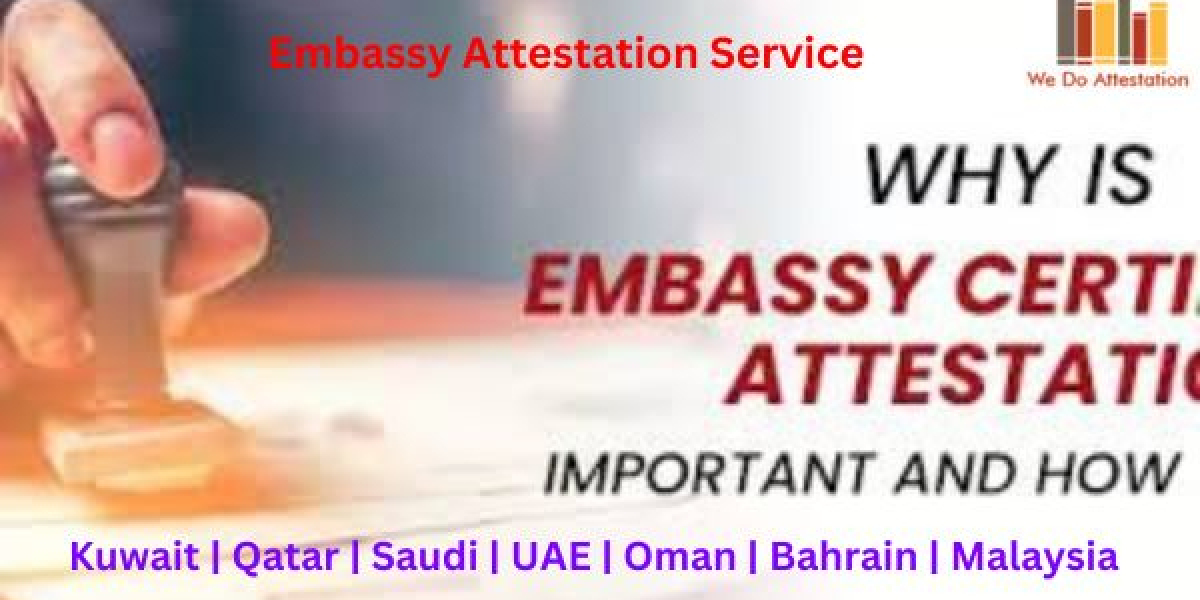Kuwait is a sought after destination for professionals, students, and entrepreneurs due to its robust economy and diverse opportunities. If you plan to work, study, or relocate to Kuwait, one crucial step is the attestation of your documents. The Best Kuwait embassy attestation process ensures that your documents are verified and recognized as legitimate by Kuwaiti authorities.
What Is Kuwait Embassy Attestation?
Kuwait embassy attestation is the process of verifying documents issued in your home country to confirm their authenticity for use in Kuwait. The attestation process involves multiple levels of certification, including validation by local authorities and the Kuwait embassy or consulate.
Why Is Kuwait Embassy Attestation Required?
Kuwait requires attested documents for a range of official and legal purposes to ensure the legitimacy of foreign-issued documents. Common reasons for attestation include:
- Employment: Employers in Kuwait require attested educational and professional certificates to verify qualifications.
- Residency Visa: Personal documents, such as birth and marriage certificates, must be attested to obtain family or dependent visas.
- Higher Education: Academic certificates need to be attested for students seeking admission to Kuwaiti institutions.
- Business Setup: Entrepreneurs establishing businesses in Kuwait must submit attested commercial documents.
Types of Documents That Require Kuwait Embassy Attestation
Documents requiring attestation can be grouped into three main categories:
1. Educational Documents
- Degree certificates
- Diplomas
- Academic transcripts
2. Personal Documents
- Birth certificates
- Marriage certificates
- Divorce certificates
- Medical certificates
3. Commercial Documents
- Articles of incorporation
- Power of attorney
- Business registration certificates
Steps in the Kuwait Embassy Attestation Process
The attestation process is systematic, involving several stages to ensure the authenticity of your documents. Here’s how it typically works:
1. Notarization
The first step is notarization by a public notary, which confirms the document’s authenticity and makes it eligible for further verification.
2. State-Level Attestation
State authorities in your home country, such as the education department or home department, must attest the document based on its nature (e.g., educational or personal).
3. Ministry of External Affairs (MEA) Attestation
After state-level attestation, the document is submitted to the Ministry of External Affairs (MEA) for national-level authentication.
4. Kuwait Embassy Attestation
The final step involves submitting the document to the Kuwait embassy or consulate. The embassy’s seal certifies the document for legal use in Kuwait.
Challenges in the Attestation Process
While the process may seem straightforward, it can involve challenges, such as:
- Incomplete Documentation: Missing or incorrect details can lead to delays.
- Complex Procedures: The requirements vary based on document type and issuing authority.
- Processing Time: Delays at different stages can extend the timeline.
Tips for a Smooth Attestation Process
- Organize Documents Early: Ensure all required documents are accurate and complete before starting the process.
- Understand the Requirements: Research the specific attestation requirements for your purpose in Kuwait.
- Plan Ahead: Start the attestation process well in advance to avoid last-minute stress.
- Follow Guidelines: Submit your documents to the appropriate authorities at each stage.
- Seek Expert Assistance: If the process feels overwhelming, consider consulting professionals experienced in document attestation.
How Long Does Kuwait Embassy Attestation Take?
The time required for attestation varies depending on the type of document and the processing speed of the authorities involved. On average, the process can take several days to weeks.
Conclusion
Kuwait embassy attestation service is a crucial step for individuals and businesses planning to relocate to Kuwait. This process ensures that your documents are validated and accepted for official use in the country.









